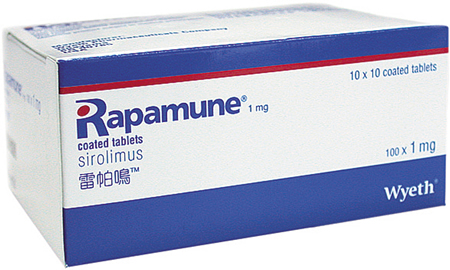Influenza (flu) epidemics occur in winter, and rarely if ever in the summer. Vitamin D levels in humans are lowest in the winter, and highest in summer. Is there a connection, and does vitamin D prevent the flu?
Wintertime flu incidence
Consider the following chart, taken from a paper, Epidemic influenza and vitamin D, which shows the percentage of all cases of type A influenza by latitude and month. Virtually all cases occur in winter and early spring, and none in the summer.

The seasonal and latitudinal distribution of outbreaks of type A influenza in the world, 1964–1975… The diagrams show for each calendar month the percentage of each zone’s total outbreaks. In both north and south temperate zones the epidemics are distributed around the local midwinter, whereas the tropical zones show a transition, each approximating towards the distribution of its own temperate zone. The curve indicates the ‘midsummer’ path taken annually by vertical solar radiation.
Next, the seasonal variation in vitamin D blood levels in people aged 50 to 80 in southern Germany.
 There’s a clear correlation between vitamin D and influenza. But is it causal?
There’s a clear correlation between vitamin D and influenza. But is it causal?
Perhaps the flu spreads because people huddle together in close contact in the winter. But, the same people work in offices, take public transport, and attend large gatherings in the summer too, and there’s almost no flu then.
Vitamin D is important for immunity too, giving us further reason to think it’s involved.
A number of other facts lead to vitamin D:
- Scandinavians have less flu than the British, and Scandinavians have higher vitamin D levels
- Solar flare activity, which decreases solar radiation by increasing atmospheric ozone, is associated with flu epidemics.
- Vitamin D deficiency predisposes toward respiratory infections.
- Cod liver oil, high in vitamin D, reduces respiratory infections.
In the “Spanish” flu pandemic of 1918-19, American fatality rates were inversely correlated to amount of a city’s UVB radiation. (UVB radiation stimulates vitamin D production.) San Antonio, Texas, had the lowest fatality rate, and New London, Connecticut, had the highest. The correlation between UVB radiation in July and fatality rates was -0.72, which is very high.
Increasing levels of vitamin D are associated with lower incidence of respiratory infections.
Randomized controlled trials are the gold standard in determining causality. Rather than look at a bunch of separate trials, let’s look at a meta-analysis of them, Vitamin D and Respiratory Tract Infections: A Systematic Review and Meta-Analysis of Randomized Controlled Trials. It looked at 11 placebo-controlled studies, and found that vitamin D supplementation protects against respiratory infections.
Overall, vitamin D showed a protective effect against RTI (OR, 0.64; 95% CI, 0.49 to 0.84). There was significant heterogeneity among studies (Cochran’s Q p<0.0001, I2 = 72%). The protective effect was larger in studies using once-daily dosing compared to bolus doses (OR = 0.51 vs OR = 0.86, p = 0.01). There was some evidence that results may have been influenced by publication bias.
Once-daily vitamin D cut the odds of respiratory infections in half. Average dose was only 1600 IU daily.
That’s good enough for me. Since vitamin D is safe, I see no reason not to take it. In the fall and winter, when I get no sun exposure, I take 5,000 IU on most days. In summer, when I get a decent amount of sun, I don’t take it.
For the record, I last had the flu nearly 7 years ago, and that wasn’t long after I had begun taking vitamin D. I’ve had maybe 2 colds in the past 5 years.
Other factors could influence my low incidence of colds and flu. Being in shape and eating and sleeping well help immune function.
Conclusion
Low vitamin D blood levels may well be the seasonal stimulus for the flu, and supplementing with vitamin D prevents respiratory tract infections.
Vitamin D could prevent a lot of misery, and for some people, even death.
I use NOW brand vitamin D, which uses extra virgin olive oil as a base. Beware of brands that use soy or other seed oils, and many of them do.










20 Comments
thanks for the good work that you do. (and for recommending a specific brand- I just put in an order)
My wife and I do pretty much the same. And I use Doctor’s Best brand. It also uses olive oil and it’s considerably cheaper too; about half the cost if you use Subscribe & Save at Amazon.
I take 5000 IU of vitamin D3 daily I take it with vitamin K3 . I try to take them both after a meal containing some fat as I believe D3 is fat soluble. I am 66 years old. I haven’t had the flu since I began daily vitamin D3 intake . I might have had 3 days of having cold like symptoms in the last 5 years. I know my remarks are anecdotal , but they are the result of my own experience. I started taking D3 on a regular basis after reading about D3 usage around the second world war and how it correlated with a decrease of flu and flu like symptoms. There is very little downside risk to taking 5000 IU of D3 daily . Many Americans are D3 deficient and have no idea that they are.
This was timely, I just bought extra vitamin D. I take ordinary vitamin pills too, but there isn’t that much vitamin D in them actually. Living in Sweden I should probably take more during the winter. By the way, since I started with the paleo diet almost exactly five years ago I have only had a cold three times: once that first winter, and twice early this year (four weeks apart, strangely). Before that I used to have a cold twice a year, or sometimes three times.
Very informative post Dennis. I was taking 2,000IU s of Vitamin D but have just ordered some 5,000IU capsules- not much sun here at the moment in the chilly UK… Very practical advice as ever!
I totally agree. I have been taking D3 for 15 years, no flu, no serious colds. This brand also looks good..https://www.amazon.com/gp/product/B00GB85JR4/ref=oh_aui_detailpage_o00_s00?ie=UTF8&th=1
I do NOT take flu shots, so I rely only on my immune system, fortified by vitamin D.
Same here. After doing a lot of research on the influenza vaccine (and how ineffective it is, for one thing), I would never get a flu shot. I think keeping your immune system healthy through diet (and some supplements, like Vit. D) is a much better approach.
(Off-topic)
Since the theme here is higher health- and life span, this may be of interest for you:
https://www.life-enhancement.com/magazine/article/1094-scottish-iq-study-confirms-cognitive-value-of-fish-oil
It’s a good idea to supplement with Vitamin K2 along with Vitamin D, as they work in a synergistic manner to make sure calcium gets deposited in the bones, and not the arteries
https://www.vitamindcouncil.org/the-synergistic-relationship-between-vitamin-d-and-vitamin-k/
I also think it’s likely that sun exposure helps protect us from not only influenza, but probably cancer and other diseases as well. Keep in mind, though, that sun exposure provides many other benefits beyond just Vitamin D. Mercola covers some of those in this article:
https://articles.mercola.com/sites/articles/archive/2012/09/29/sun-exposure-vitamin-d-production-benefits.aspx
I take a Vitamin D supplement during the winter months, because there is no way for me to get adequate sun exposure here (Michigan) during the winter. In the summer, though, I try to get at least a little bit of sun every day (that I can, anyway), as I think it’s important for a variety of reasons (beyond just getting enough Vitamin D).
That NOW brand is even a better price than CVS 5000iu vitamin D. Awesome!
For those on a tight budget or not willing to waste money:
As far as I know the best deals available for most supplements, and also for Vit.D, are in the form of “bulk powder” – search this term in addition to your desired supplement, there are multiple suppliers and the cost is almost always significantly lower than the encapsulated variant.
New paper shows major arithmetic mistake underestimated Vitamin D needs by 15x..recommends more than 8000/day….https://www.ncbi.nlm.nih.gov/pubmed/?term=28768407
Nice post. I’m convinced. Been taking it for years in the winter, sun in the summer. Mercola thinks that UV source is clearly the best and even recommends low intensity tanning beds in the winter which simulate the sun. That’s controversial but it seems that much of the fear is media driven. I can’t find much to support anything but a very small melanoma risk, but I’m not positive.
Summer sun > indoor tanning >> Vitamin D supplementation .>> Flu vaccine
I think it might be worth adding, that alcohol and sugar are quite strong immune suppressors. Vitamin D supplementation is crucial, but avoiding alcohol and sugar/refined carbs is probably just as important in the prevention of the common colds and the flu.
What about the cold dry air though? I’ve always known colds to be more likely in winter because of dried out mucus membranes. No idea if that has any play on flu though.
I don’t think I ever really get the flu. I seem to be getting colds as often these last two years, since coming here. My D is 50 or 60.
Oh, just came from the tanning salon…these Germans do it *right*. Asked for the most UVB intensive bed rather than a gentler one. These Germans do lots of things right though, this is just another one.
Crikey, this rhinovirus is really tough, still kicking me around after nearly two weeks. Thanks for JINXING ME by making me read about colds and stuff.
Really though, I had fewer colds during my Orygun years (93-04) than I’d had during my years as a Minnesconsinite. I attributed this to the relative dryness of the air.
Do I need to take 400 mg vitamin K2 with 5000UI D3?
I’m on moderate low carb for two years, trying to gain weight in a gym (65 kg 183 cm tall 31 years old).
Just read “How to gain weight on low carb” article in dietdoctor.com and linked to you website.
I try to eat more eggs, avocado, coconut, olive oil, fat read meat, chease, drink tea with 23% cream and eat berries with cream also.
Hi Adel, thanks for visiting from Russia. It’s a good idea to take vitamin K2, and perhaps especially so when taking vitamin D. You can read my article on vitamin K. The amounts in vitamin K supplements are generally high, for instance, the supplement I take has 5 mg, much more than the required amount. It comes in a capsule, so open a capsule and pour a small amount in my coffee; one capsule lasts me a week.